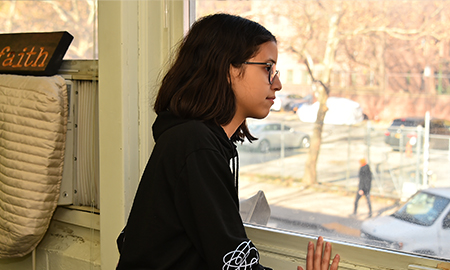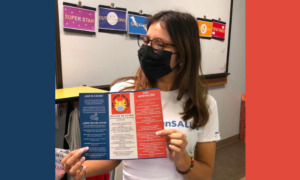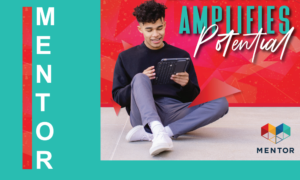
What our young people need most from us right now
Online portals have replaced classrooms. Zoom meetings have replaced hallway conversations. Indoor isolation has replaced after-school basketball practice. This is the new and hopefully momentary normal for youth across America. In this time of physical distancing, relationships matter now more than ever to help people feel connected. We must ensure that physical distance does not lead to disconnection.
At a time when research shows that loneliness and isolation are trending upwards for all age groups, we know that intentional relationship building is a powerful solution. Further, in this moment of physical distancing, we confront the impact specifically on our nation’s young people.
We reflect on the first generation college student who has persisted and excelled but won’t have a graduation ceremony. The child for whom the dance troupe was the most important part of their day, because it meant one-on-one time with an adult who shared their passion and believed in their talents. The high schooler whose greeting from a school resource officer each morning let them know someone was expecting them and taking note of whether they were in school. We may not be able to recreate these physical moments but we can create the same level of interest, caring, purpose, and belonging. We must foster connection and support for youth for not only tangible needs, but for their social-emotional well-being.
We are heartened by the herculean efforts by our nation’s educators and local government to meet some of the key tangible needs for living and learning — resources from housing assistance to laptops to food pick-up. But we also know that accessing these resources can be complicated, especially across language barriers, digital divide, and time and financial pressure. This is the navigational support trusted mentors, allies, and advocates must play in this time.
Just as our heroic healthcare workers treat every patient with the utmost care and expertise, times like these challenge us to live out the mantra: there’s no such thing as other people’s children. The good news? Adults in America already overwhelmingly cross racial, economic, and other bridges to mentor young people outside their families. More than three-quarters of mentors are mentoring youth from a different socioeconomic status or racial background. And regardless of whether they are mentoring, most adults are extremely supportive of mentoring young people. We must continue on that trajectory, especially now.
Everyone has a role to play, including kids, teachers, neighbors, businesses, and schools. We see it in the mentor in Boston who helped ensure a local family got the Chromebooks available through their school district so students could show up for school virtually and stay connected. We see it in the middle schoolers in a Massachusetts town who are leaving handwritten notes in chalk outside their older neighbors’ homes — “You are loved” and “What do you need?” — and in the student who checks in via text with the classmate whose face he hasn’t seen on the class Zoom meeting in two days.
For the young people in our lives and in our communities, we can strengthen connection in four ways:
Be mindful. As the COVID-19 pandemic spreads, it may trigger trauma for young people impacted by the virus or by the news surrounding the pandemic. Let young people know that you see them and are there for them.
Be intentional about relationships with youth. Acknowledge what is going on and engage in a dialogue about the pandemic. This also means understanding and honoring your own emotions and theirs.
Be in it together. Workplaces, schools, businesses, and communities must think about the unique role they each place in a young person’s life and step up to keep kids a priority.
Be communicative. Healthy and supportive relationships are crucial for youth and especially in this moment. Be clear about how you will stay in touch, make a plan, and stick to it. This lets the young people in your life know that you care, value the relationship, and will show up for them even if you’re physically apart.
As we hunker down as family units inside our homes, we must keep our own children connected to those outside our homes, and make sure we do not forget the young people outside our walls. Whether they are facing inconvenience or instability, young people need us now more than ever. As we collectively face uncertainty and physical separation, let’s remember this: There is no replacement for the presence and connection with another, even if it’s not physically right in front of us.
David Shapiro is CEO of MENTOR, the national nonprofit leading the youth mentoring movement and expert, go-to resource for quality mentoring. Jean Eddy is President and CEO of American Student Assistance, a national nonprofit whose mission is to help students know themselves, know their options, and make informed decisions to achieve their education and career goals.
For More Coronavirus Tips and Resources >>> https://www.mentoring.org/coronavirus-resources






























